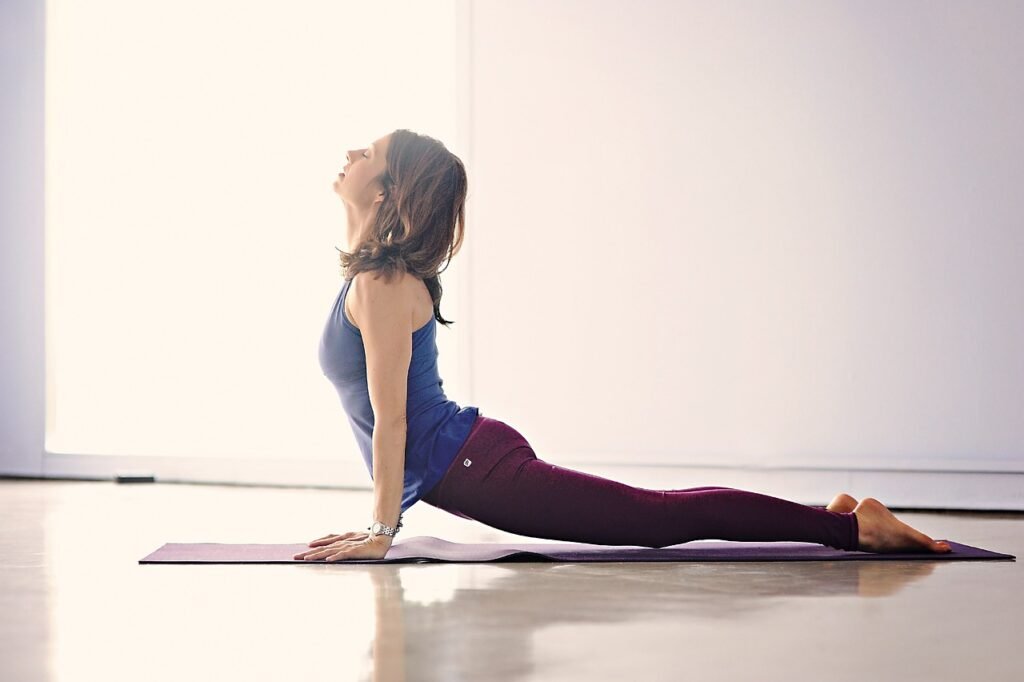
- Intro
- Understanding the Fundamentals of Resistance Training
- The Multifaceted Nature of Yoga Practices
- Yoga as a Form of Bodyweight Resistance Training
- The Benefits of Integrating Yoga into Your Resistance Training Routine
- Considerations for Maximizing the Resistance Training Aspect of Yoga
- The Verdict: Yoga as a Complementary Resistance Training Modality
Intro
When it comes to fitness and exercise, there are countless options available to individuals looking to improve their strength, flexibility, and overall well-being. One popular form of exercise that has gained significant attention in recent years is yoga. But is yoga considered resistance training?
In this blog post, we will explore the relationship between yoga and resistance training to provide you with the answer you need.
Understanding the Fundamentals of Resistance Training
At its core, resistance training encompasses a spectrum of exercises dedicated to fortifying strength, stamina, and muscle volume. This regimen hinges on the principle of challenging the body through resistance.
It’s a multifaceted domain, where resistance might manifest in the form of weighted implements, elastic bands, or the undeniable force of gravity acting upon one’s own body mass.
The essence of resistance training lies in its versatility and adaptability, catering to a broad array of fitness objectives, from enhancing muscular endurance to sculpting an aesthetic physique.
The methodology behind resistance training is scientifically sound, grounded in the biological principle of muscle hypertrophy.
When muscles face resistance beyond their usual load, microscopic tears occur within the muscle fibers, initiating a repair process that results in stronger and larger muscles. This process is not merely about building bulk but also about augmenting the efficiency of muscles, making them more capable and resilient in the face of physical demands.
Incorporating resistance training into a fitness regimen is pivotal for anyone aiming to achieve a comprehensive improvement in physical health. It’s not solely about muscle growth; it’s a pathway to elevating overall fitness, enhancing metabolic health, and fortifying the skeletal structure.
It’s a testament to the principle that our bodies are capable of remarkable adaptation when challenged, a concept that is both empowering and foundational to the journey of physical enhancement.
The Multifaceted Nature of Yoga Practices

Yoga, a practice deeply rooted in ancient traditions, extends far beyond the confines of mere physical exercise. It is a comprehensive discipline that intertwines the cultivation of mental, spiritual, and physical prowess.
This holistic approach not only fosters an improved sense of well-being but also engenders a profound connection between mind and body.
Within the realm of physicality, yoga showcases an impressive diversity in its practices, ranging from the gentle flows of Hatha to the vigorous sequences of Vinyasa, each tailored to meet a variety of personal health and fitness goals.
This versatility is pivotal when considering yoga in the context of resistance training. Unlike conventional resistance exercises that often focus on isolated muscle groups, yoga offers a dynamic form of strength training that involves multiple muscle groups simultaneously.
Through a series of poses known as asanas, practitioners engage in a comprehensive workout that challenges stability, endurance, and strength. These asanas, from the foundational plank to the intricate arm balances, invoke the principles of resistance training without necessitating external equipment.
Instead, they leverage the body’s own weight and the gravitational pull to create resistance, making the practice accessible yet challenging.
Additionally, yoga’s emphasis on mindful movement and breath awareness enriches the resistance training experience.
This mindful approach ensures that practitioners not only work on their physical strength but also enhance their mental focus and emotional resilience. By weaving together physical postures, controlled breathing, and meditation, yoga transcends conventional exercise paradigms, offering a multifaceted practice that nurtures the body, mind, and spirit in unison.
Yoga as a Form of Bodyweight Resistance Training
Yoga embodies a sophisticated blend of strength and flexibility, redefining resistance training through the strategic use of body weight.
As practitioners navigate through various poses, from the poised steadiness of a warrior pose to the core-engaging challenge of a crow pose, they engage in a silent yet intense dialogue with gravity.
This interaction is pivotal, transforming each movement and stance into an opportunity for strength building. Unlike traditional gym workouts, where barbells and dumbbells are the norms, yoga uses the body itself as the primary tool of resistance.
This approach not only simplifies the logistics of incorporating resistance training into one’s routine but also deepens the connection between body and mind.
The essence of yoga as resistance training is not in the replication of gym exercises but in the cultivation of strength through sustained, controlled movements. Holding a pose for an extended period tests endurance and muscular strength in a manner distinct from lifting weights.
This sustained engagement demands a high degree of muscle activation, similar to the effects of isometric exercises found in more conventional forms of resistance training.
The subtlety of yoga’s challenge lies in its incremental intensity, allowing practitioners to progress at their own pace by gradually increasing the duration and complexity of poses.
Through its emphasis on alignment and posture, yoga also educates practitioners about their bodies, promoting a form of resistance training that is as introspective as it is physical.
It’s a holistic workout that not only enhances physical strength but also instills a sense of mental discipline and focus, making it an invaluable component of a balanced resistance training regimen.
The Benefits of Integrating Yoga into Your Resistance Training Routine

The fusion of yoga with a traditional resistance training regimen unfolds a tapestry of benefits that extend across the spectrum of physical and mental fitness.
By weaving yoga into your resistance training narrative, you embark on a journey that not only cultivates strength and muscle tone but also brings forth enhancements in flexibility and stability.
This symbiotic relationship between the two practices fosters a holistic approach to fitness, where the rigidity of conventional resistance training meets the fluidity and grace of yoga, creating a balanced, comprehensive workout experience.
The integration of yoga poses that challenge your body to maintain balance and stability under the influence of gravity enriches your resistance training by engaging muscles that are often overlooked in traditional workouts.
This engagement promotes a more symmetrical muscle development, reducing the risk of injury and ensuring a well-rounded physical condition.
Moreover, the focus on breath control and mindful movement intrinsic to yoga practice amplifies the quality of each exercise in your resistance training routine.
The enhanced mental focus helps in achieving a deeper muscle engagement and a more effective workout, elevating the efficiency of your training sessions.
Incorporating yoga into your resistance training also paves the way for improved recovery and reduced muscle tension.
The gentle stretching and relaxation techniques inherent in yoga can aid in muscle recovery, enhancing your body’s ability to heal and prepare for subsequent workouts.
This amalgamation of strength, flexibility, and recovery, underpinned by a sharpened mental focus, crafts a well-rounded approach to fitness that transcends the benefits of resistance training alone, fostering an environment where physical health is in harmonious balance with mental well-being.
Considerations for Maximizing the Resistance Training Aspect of Yoga
To optimize the resistance training benefits of your yoga practice, it’s crucial to delve into the nuances of each pose, focusing on precision and muscular engagement.
Achieving and maintaining the correct alignment in each asana is not merely a matter of form; it is the bedrock upon which strength is built.
As you navigate through your practice, invite a level of intensity to your muscle contractions, akin to the mindful tension you would apply in conventional resistance exercises.
This conscious engagement ensures that with every pose, you’re effectively leveraging your body weight as resistance, intensifying the strength-building potential of your practice.
Incorporating poses that challenge your limits, such as those requiring balance, flexibility, and core strength, can significantly amplify the resistance training component of your yoga regimen.
Progressively increasing the hold time of these poses adds a layer of endurance training, compelling your muscles to adapt and strengthen.
Be intentional with your breath; use it as a tool to deepen your focus and endurance during these sustained holds.
By marrying the principles of alignment, muscular engagement, and mindful progression, you craft a yoga practice that not only elevates your physical prowess but also hones the resilience of your mind and body in unison.
The Verdict: Yoga as a Complementary Resistance Training Modality
Upon a thorough exploration of yoga’s essence and its intricate dynamics, we arrive at a compelling conclusion.
Yoga, with its profound reliance on body weight for resistance and the meticulous engagement of muscle groups through sustained poses, unmistakably qualifies as a form of resistance training.
This practice, however, transcends traditional boundaries by harmonizing strength development with flexibility and mental fortitude.
Its inclusion in a resistance training regimen enriches the fitness journey, offering a holistic approach that nurtures both body and mind.
Yoga’s contribution to resistance training is not merely supplementary but transformational, broadening the scope of what resistance training can encompass.
It challenges and refines the body’s capabilities, ensuring a versatile, balanced, and comprehensive path toward physical well-being.
The fusion of yoga into resistance training routines heralds a new frontier in fitness, one that embraces the full spectrum of human health and performance.



I appreciate you sharing this blog post. Thanks Again. Cool.